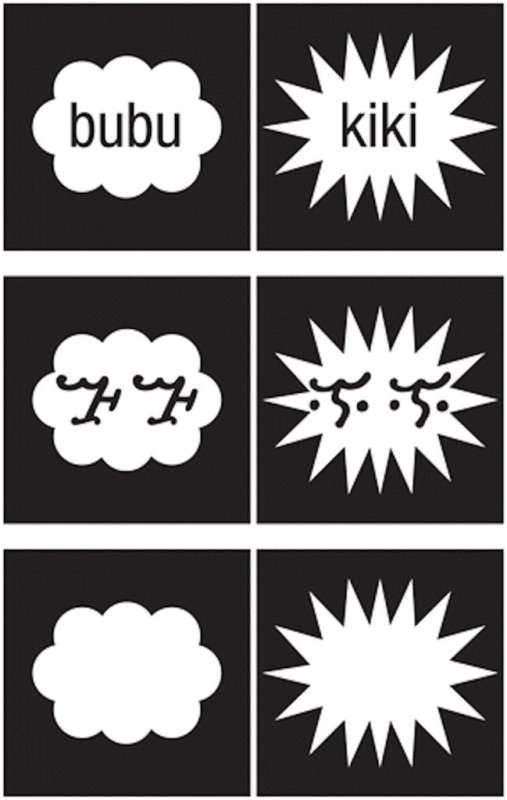Humans tend to associate sharp-sounding words with spiky shapes and soft-sounding words with rounder shapes. Photo by Hung et al./Psychological Science
Feb. 9 (UPI) -- Humans naturally perceive words as having physical or geometric qualities. New research shows humans subconsciously perceive words as being "round" or "sharp."
The "bouba-kiki" effect is a well-established psychological phenomenon describing the tendency for humans to link soft-sounding made-up words, like "bouba," with rounder, softer-looking shapes, and hard or sharp-sounding nonsense words, like "kiki," with more angular shapes.
Previous studies have shown the effect to be present across age groups and cultures. The new research proved the bouba-kiki effect also operates subconsciously.
Scientists had study participants react to the presence words written inside of shapes. Both soft-sounding and hard-sounding nonsense words appeared inside both round and angular shapes. Some pairings were congruous -- a soft word in a round shape -- while others were incongruous.
Participants were to press a button as soon as a shape-word combo appeared on the screen. The results showed participants were quicker to recognize the appearance of a congruous combo than an incongruous pairing.
Researchers repeated the experiment, this time using letters as substitutes for words. Researchers had participants associate one made-up letter with a hard-sounding word and another with a soft-sounding word. The results were the same.
"The findings here show that once we have learned the sound of a letter, we are able to not only extract the sound without consciously perceiving the letter, but also map this unconsciously extracted sound to an unconscious shape," Shao-Min "Sean" Hung, a researcher at the Duke-NUS Medical School in Singapore, said in a news release.
In another follow-up experiment, researchers had participants listen to hard- and soft-sounding words while watching for the brief, faint appearance of a shape spliced into slides of different images. Again, congruous sounds allowed for speedier shape perception.
"All these findings expand the limit of unconscious processing, demonstrating that crossmodal mapping occurs outside of the realm of conscious awareness," said Hung.
Researchers published the results of their experiments in the journal Psychological Science.















